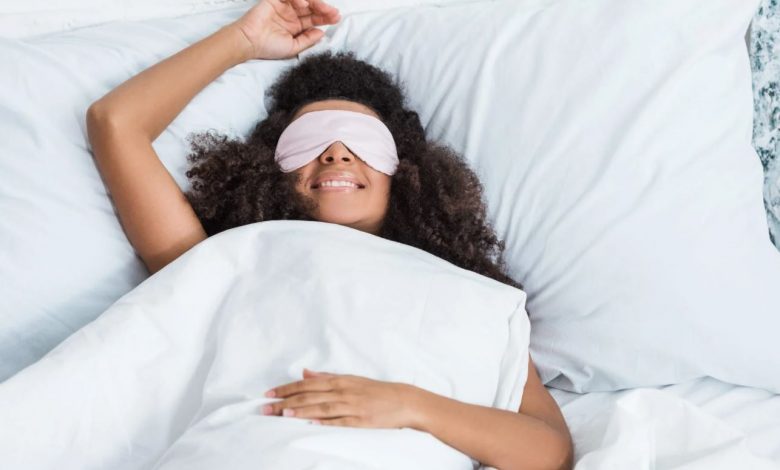9 Tips to sleep better at night

A healthy sleep pattern directly impacts our physical and mental health. If you don’t get enough sleep, it could be a major drain on your energy levels, productivity, emotional well-being and even your weight. Many of us doze off at night in search of the rest we require.
The way you feel throughout your waking periods is usually a result of the quality of your sleep, so the answer to your sleep problems is often discovered in your daily routine.
Medical delivery in Kenya is allowing people to order their medicines online and get them on their doorsteps. This online medical service not only saves people’s time but also saves their money.
Think about the many factors that could hinder restful nights, stress from work, family obligations, sudden issues, illness, etc. There’s no reason to wonder why better sleep can be difficult to find.
Although you may not be able to manage the causes that disrupt your sleep, you can implement practices that promote better sleep. Begin by following these simple guidelines.
Stay on a schedule for sleep
Make sure you are taking eight hours of sleep every night. Rest in a night for an adult who is healthy should be a minimum of seven hours. A majority of people need less than eight hours of sleep to meet this requirement.
You should go to bed and wake up exact time each day. If you aren’t able to get to sleep in about 20 minutes, go out of your room and do something more that is relaxing. You can read or listen to relax your mind. Return to sleep when you’re exhausted. Repeat as necessary.
Sleep less in daytime
The long naps during the day can interfere with sleeping at night. If you do decide to nap, you should limit yourself to 30 minutes or less and try to avoid napping late during the morning.
Suppose you work at night and sleeps in the daytime. Make sure to take a nap late after the morning so that you wake up just a few hours before work.
Physical workout in the daytime
Regular exercisers sleep more comfortably at night and are less tired throughout the daytime. Regular exercise can help alleviate insomnia symptoms and sleep apnea, and also increases the time you are in the restorative, deep phases of sleep.
The more active you are, the more potent the benefits to sleep. Even light exercises, like walking for 10 minutes every day, can give you better sleep.
It may take several months of consistent activities before you can experience the complete benefits of sleep. Therefore, keep patience and focus on developing a habit of exercise that will last.
Make sure you know when to call your doctor
Most people experience one or two nights of sleeplessness; however, talk to your physician if you frequently struggle to sleep. Finding and treating the root issues can help you get the best sleep you can get.
Every RT-PCR test in Kenya is carried out to ease people’s anxiety about being infected with Covid. To determine whether you are infected with a virus or not, this is the most reliable and scientific method.
Be aware of your choices for food and beverages.
Your eating habits during the day can affect the quality of your sleep, particularly in the early time prior to your bedtime.
Take a healthy diet. It’s the overall way you eat instead of specific food items which can make the greatest impact on your quality of sleeping, and your overall well-being.
Consuming a Mediterranean-style diet high in fruit, vegetables and healthy fats, as well as limited quantities of red meat, may aid you in falling more quickly to sleep and staying in bed for longer.
Reduce the number of sugary foods as well as refined carbohydrates. A diet that is heavy in refined carbohydrates and sugars like white rice, white bread and pasta throughout the day can cause a sense of wakefulness in the night, and force you from your deep sleep.
Limit caffeine and nicotine.
You might be shocked to learn that caffeine can trigger sleep issues for as long as 10 to 12 hours after you drink it. In the same way, smoking cigarettes is a stimulant that can interfere with your sleep, particularly when you smoke near the time of bed.
Avoid eating large meals in the evening.
It is best to have dinner around 8 pm and stay clear of heavy, rich food within 2 hours of going to bed. Foods that are acidic or spicy can cause stomach problems and heartburn.
Do not drink prior to going to bed.
Although a drink at night can assist in relaxing, it can disrupt the sleep cycle after you’ve gone off.
Do not drink too many fluids at night. Consuming a lot of fluids can cause frequent trips to the bathroom all night long.
Select the comfortable bedding.
A comfortable pillow and mattress are essential for a restful night but avoid sleeping on too much hard or soft bedding.
The kind of pillow you select will be based on your preferred sleeping position. If you’re a side-sleeper your pillow must be able to comfortably support your neck, head, back and ear.
People who lie on their backs should use a smaller pillow to lessen neck strain.
Listen to music
Instead of focusing on the news or the whirlwind of your mind once you’re at home, you can put on your music of choice. Although it has been found to reduce blood pressure and lower stress levels, any type of music you love will allow you to relax and boost your mood.
If you’re in search of music that is specifically designed to calm you, look into the sleep music and sleep casts from Headspace.
Also check : How To Get Instant Approval on Home Loan?
Stress and anxiety
Too much thinking about sleep and trying hard to get yourself into sleep is likely to keep your mind awake.
Relaxing your mind and body can help you get to sleep more easily. Relaxation techniques that are progressive will help you relax and unwind during these times.
Find a way to deal with your concerns or worries prior to the time you go to bed. Write down the things that are in your head and save them for the next day.
Stress management
The management of stress can be helpful. Begin with the basics, including organizing, making priorities clear and delegating tasks. Meditation can also help ease anxiety.
Hush Noise
A dripping faucet, nearby traffic, or even a loud dog could disrupt your rest. If you’re a parent, you may be aware of sounds you hear late at night from a newly born kid.
To avoid noise at night, try using a fan, air conditioner and a white noise program or machine. You can also test earplugs to avoid noise.
Also Read : Tips to Build A Custom Fitness App




